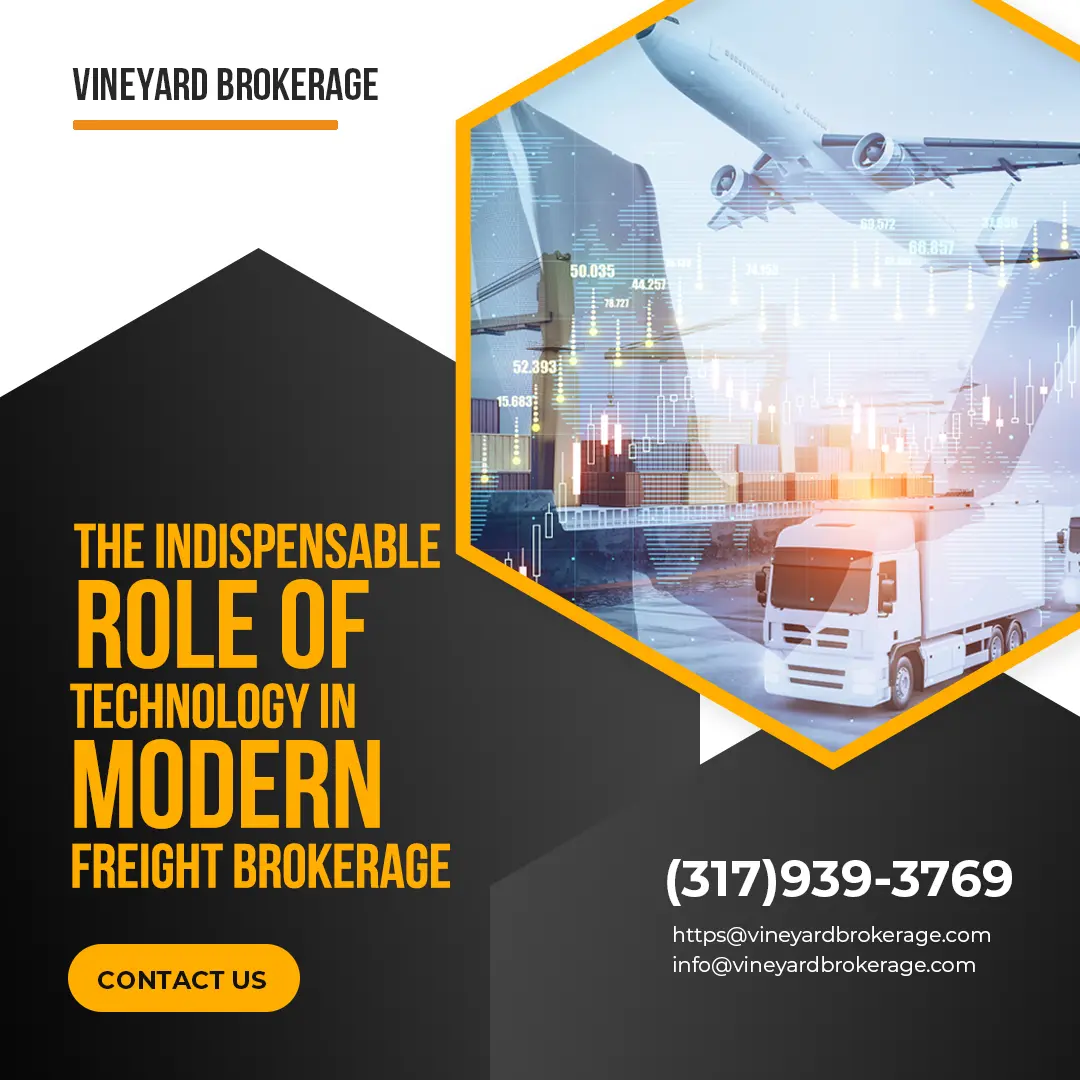Navigating Success: The Indispensable Role of Technology in Modern Freight Brokerage

In the dynamic world of logistics and supply chain management, the role of a freight broker has evolved into a critical link that seamlessly connects shippers and carriers. The demands of today’s fast-paced business environment require freight brokerage to be efficient, agile, and responsive. Enter technology – the driving force that has revolutionized the landscape of modern freight brokerage. In this blog, we delve into the pivotal role of technology in shaping and optimizing the operations of modern freight brokerage firms.
The Changing Landscape: From Pen and Paper to Pixels and Algorithms:
Gone are the days when freight brokerage was limited to phone calls, fax machines, and manual paperwork. As the industry has grown in complexity and scale, so too has the need for more sophisticated solutions. Technology has emerged as the game-changer that enables freight brokers to navigate this landscape with unprecedented speed, accuracy, and efficiency.
Key Technological Advancements in Modern Freight Brokerage:
1. Digital Platforms and Marketplaces:
Technology has given rise to digital freight platforms and marketplaces, creating a virtual ecosystem where shippers and carriers can seamlessly connect. These platforms provide real-time visibility into available loads, truck capacities, and pricing, enabling brokers to match shipments with carriers more efficiently.
2. Automation and Artificial Intelligence (AI):
Automation streamlines routine tasks, allowing brokers to focus on high-value activities. AI-driven algorithms analyze historical data to predict market trends, pricing fluctuations, and optimal routes, empowering brokers to make informed decisions and optimize their operations.
3. Data Analytics and Insights:
Technology enables freight brokers to gather and analyze vast amounts of data. This data-driven approach provides valuable insights into market demand, carrier performance, and customer preferences. Armed with these insights, brokers can make strategic decisions that improve service quality and profitability.
4. Real-Time Tracking and Visibility:
Modern customers demand transparency and real-time updates. Technology allows freight brokers to provide customers with accurate shipment tracking, estimated arrival times, and notifications on potential delays. Customer happiness and trust are both increased by this level of transparency.
5. Collaborative Communication Tools:
Effective communication is crucial in the world of freight brokerage. Technology provides collaborative platforms and messaging tools that enable seamless communication between brokers, shippers, carriers, and even drivers. This reduces miscommunication and enhances coordination throughout the supply chain.
6. Blockchain Technology:
Blockchain offers enhanced security, transparency, and traceability. By creating an immutable digital ledger of transactions, it reduces the risk of fraud and ensures data integrity. This technology is particularly valuable in verifying contracts, payments, and compliance documentation.
Benefits and Impacts of Technology in Modern Freight Brokerage:
1. Efficiency and Speed:
Technology accelerates the entire brokerage process, from load booking to carrier selection. Automation reduces manual errors and speeds up administrative tasks, allowing brokers to handle more transactions in less time.
2. Cost Savings:
Data-driven insights help optimize routes, reduce empty miles, and minimize fuel consumption. Additionally, streamlined operations and reduced paperwork contribute to cost savings.
3. Enhanced Customer Experience:
Real-time tracking, communication, and accurate delivery estimates enhance the customer experience. Customers can make informed decisions based on transparent and up-to-date information.
4. Competitive Edge:
Brokers armed with advanced technology gain a competitive advantage. They can respond faster to market changes, offer better pricing, and provide superior service quality.
5. Adaptation to Industry Changes:
The logistics industry is evolving rapidly, with new regulations, market trends, and customer demands. Technology equips brokers to adapt quickly to these changes and remain relevant.
In Conclusion: Navigating a Digital Future:
As technology continues to reshape industries, modern freight brokerage stands as a testament to the transformative power of innovation. The integration of technology has elevated the role of freight brokers from intermediaries to strategic partners, streamlining processes, enhancing customer experiences, and optimizing operational efficiency.
With a full range of transportation services, including FTL, LTL, packing, and freight forwarding, Vineyard Brokerage stands out as a trustworthy partner in a world where logistics can make or break a company. We stand out because of our dedication to deconstructing the complicated logistics industry. Find out how we can improve your shipping experience by getting in touch with us at info@vineyardbrokerage.com or (317) 939-3769. While you direct your company toward success, let us drive the roads.

